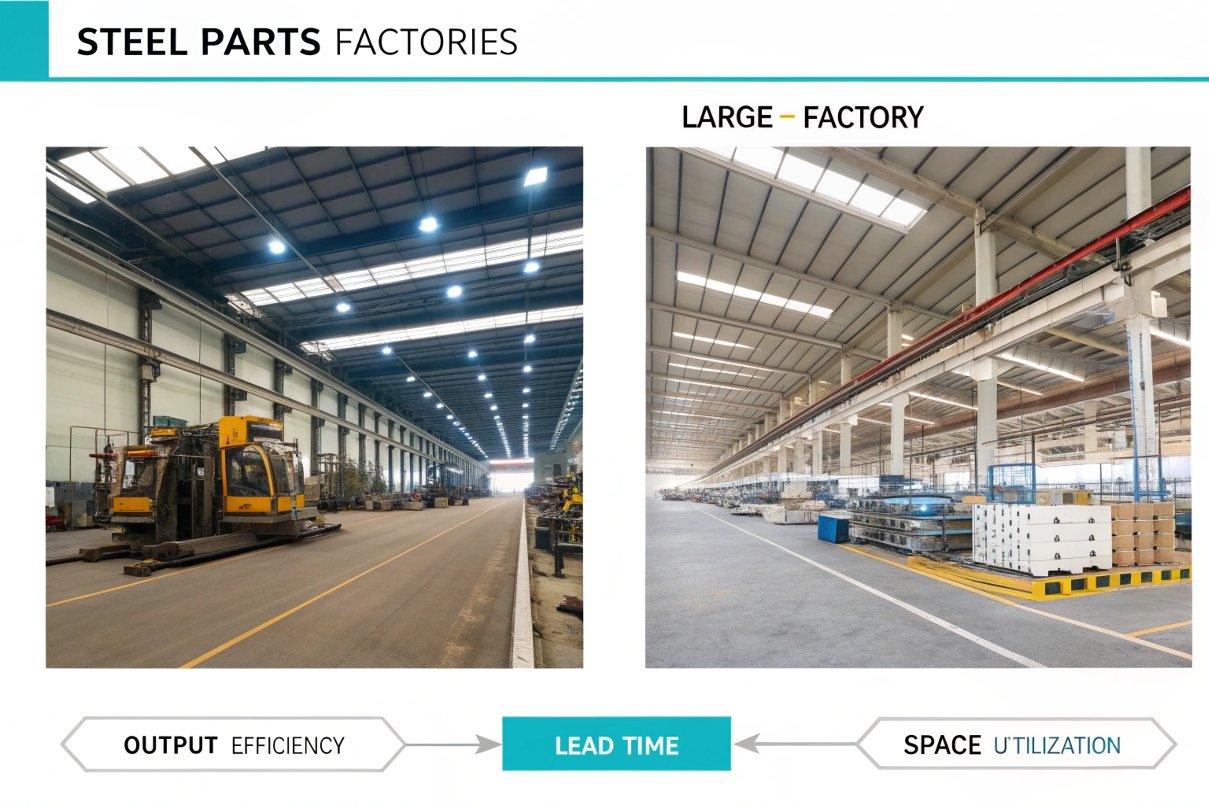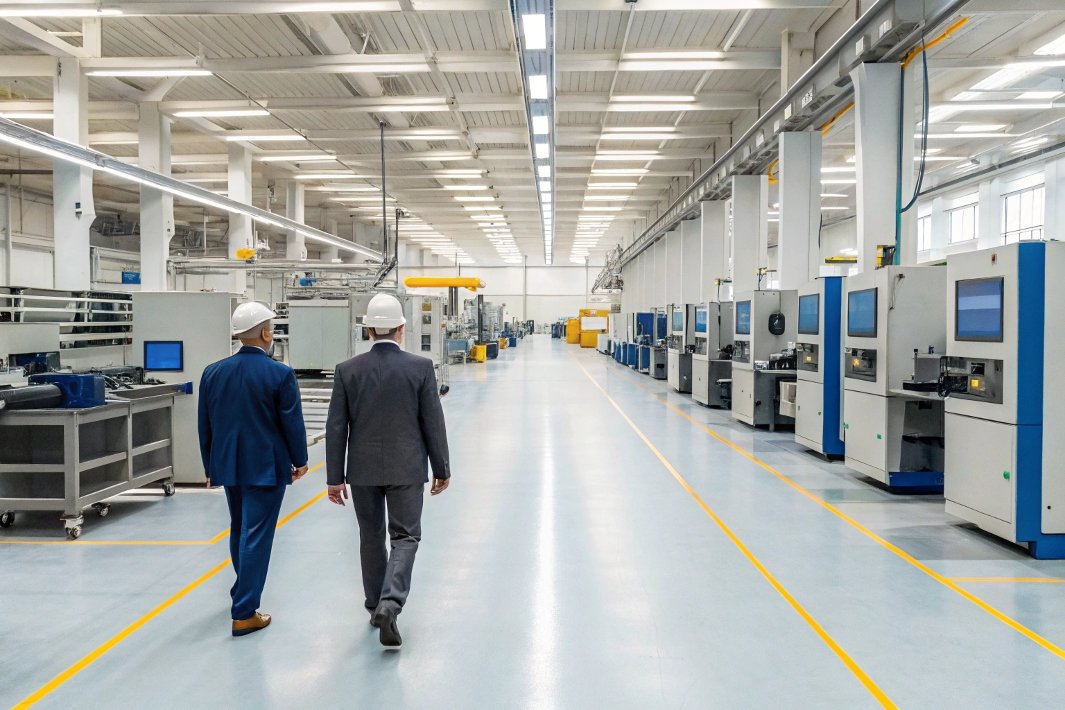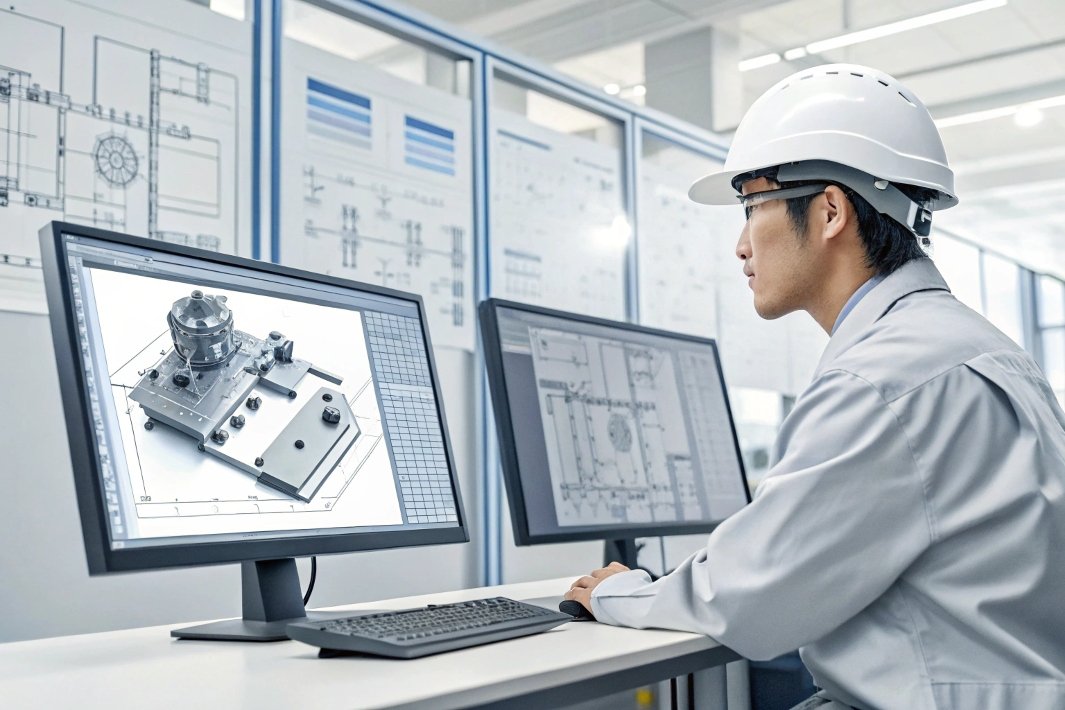
Ensuring that a supplier can meet both quality and quantity requirements is vital. I’ve encountered situations where inadequate production capacity led to delayed deliveries and compromised product standards.
To effectively assess the production capacity and equipment level of custom steel parts suppliers in Vietnam, it’s essential to evaluate their infrastructure, technological capabilities, and operational efficiency. This involves conducting on-site visits, reviewing certifications, analyzing production metrics, and engaging with current clients to ensure they can fulfill your specific requirements.
Understanding these factors will help in establishing reliable partnerships.
How does factory size impact production capacity?
A factory’s size often correlates with its production capacity, but it’s not the sole determinant.
While larger factories may indicate higher production capacity due to more extensive facilities and equipment, efficiency and organization play crucial roles. Well-organized, smaller factories with advanced processes can sometimes outperform larger, less efficient ones.

Factory Size vs. Capacity Comparison
| Factory Size | Typical Output Level | Staff Size | Risk of Bottlenecks |
|---|---|---|---|
| Small (≤1,000 m²) | Low–Medium | 10–30 employees | Higher |
| Medium (1,000–5,000 m²) | Medium–High | 30–100 employees | Moderate |
| Large (≥5,000 m²) | High (mass production) | 100+ employees | Lower (with SOPs) |
What to Observe During a Visit
- Layout and cleanliness
- Material flow and space utilization
- Presence of storage for raw materials and finished goods
What key equipment should be checked when visiting a factory?
Inspecting specific equipment during a factory visit provides insights into the supplier’s manufacturing capabilities.
Key equipment to check includes CNC machines, laser cutters, robotic welding systems, and automated assembly lines. The presence of advanced machinery indicates the supplier’s ability to produce precise and high-quality steel parts.

Equipment Inspection Table
| Equipment | Function | Why It Matters |
|---|---|---|
| CNC Milling/Turning Centers | Automated machining for complex steel components | Precision, repeatability, versatility |
| Laser Cutting Machines | Cutting metal sheets and plates | High-speed, high-precision cutting |
| Robotic Welding Arms | Automating steel welding processes | Strong weld quality and efficiency |
| Hydraulic Press Machines | Shaping and forming steel parts | Uniformity in forming operations |
| Quality Control Tools | Calipers, CMMs, hardness testers, etc. | Ensures adherence to drawing specifications |
Key Questions to Ask
- How often is the equipment maintained?
- Are machine operators professionally trained?
- How many production lines run simultaneously?
Do suppliers use advanced manufacturing technology?
The adoption of advanced manufacturing technologies is a strong indicator of a supplier’s commitment to quality and efficiency.
Suppliers utilizing technologies such as CAD and CAM software 1, automation systems, and ERP tools demonstrate enhanced precision, reduced waste, and improved production timelines.

Technology Usage Table
| Technology | Purpose | Benefit |
|---|---|---|
| CAD Software | Engineering drawings and 3D modeling | Faster prototyping, fewer errors |
| CAM Software | Automated machining based on CAD files | Reduced cycle time, better repeatability |
| ERP & MRP Systems | Resource and production planning | Real-time inventory and workflow control |
| Barcode Scanning & Tracking | Quality control and traceability | Accurate defect tracking and process logs |
What Advanced Practices to Look For
- Use of Lean or Six Sigma methodologies
- In-house simulation or prototyping capabilities
- Integration of IoT sensors in machines for predictive maintenance
How to verify a supplier’s production capacity through third-party audits?
Engaging third-party auditors provides an objective assessment of a supplier’s capabilities.
Third-party audits involve evaluating the supplier’s facilities, equipment, workforce, and quality management systems. These audits help verify that the supplier can meet your production requirements and adhere to international standards.

Audit Coverage Areas
| Audit Focus Area | What’s Evaluated | Why It Matters |
|---|---|---|
| Factory Organization | Layout, material flow, storage | Impacts efficiency and safety |
| Production Metrics | Capacity utilization, cycle times | Reflects throughput and bottlenecks |
| Equipment & Maintenance | List, age, and upkeep of machinery | Ensures reliability and uptime |
| Workforce Skills | Operator training and certifications | Affects product consistency and quality |
| Quality Control Process | Inspection protocols, documentation | Ensures compliance with client specs |
Recommended Audit Providers
Conclusion
Assessing the production capacity and equipment level of custom steel parts suppliers in Vietnam requires a comprehensive approach. By evaluating factory size, inspecting key equipment, verifying the use of advanced technologies, and conducting third-party audits, you can ensure that your chosen supplier is capable of meeting your quality and quantity expectations.
-
Learn how CAD/CAM software streamlines production and boosts manufacturing precision. ↩
-
SGS Vietnam offers audit and certification services to verify supplier capacity and system standards. ↩
-
Bureau Veritas Vietnam provides detailed factory audits to assess performance and quality assurance. ↩
-
Intertek Vietnam conducts supplier evaluations to ensure compliance with production requirements. ↩
-
TÜV SÜD Vietnam supports manufacturing optimization through customized audit solutions. ↩

